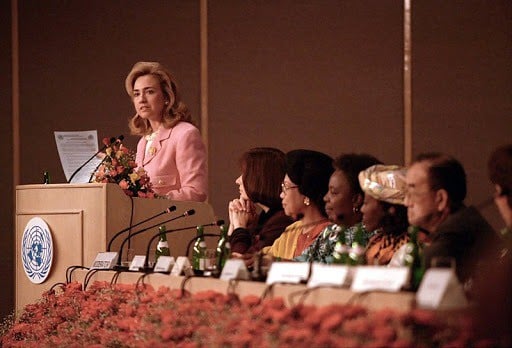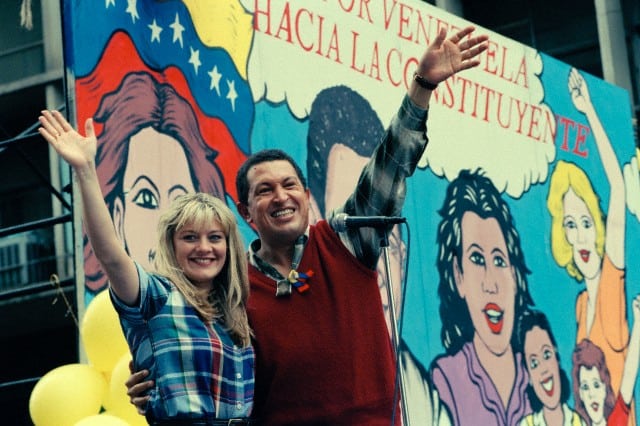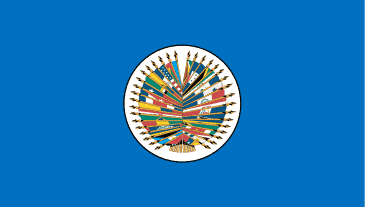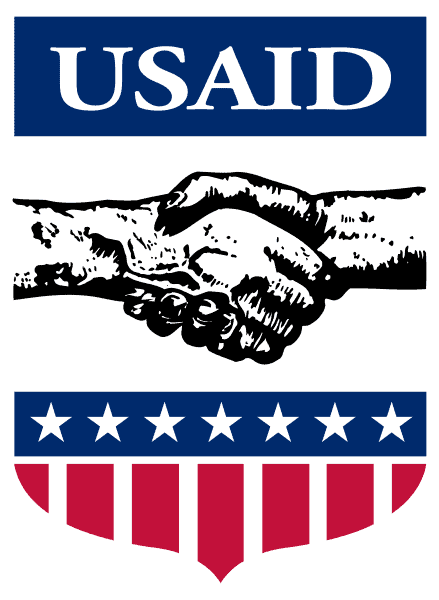
When USAID employee Judith Gilmore was asked to play First Lady of the United States (FLOTUS), it wasn’t because a president had asked for her hand in marriage—it was because her boss had asked her to fill in for Hillary Rodham Clinton, the real FLOTUS, who was running behind and couldn’t make the opening ceremony of the Vital Voices First Ladies Conference in 1998. As the most senior woman in the USAID bureau assisting with the conference, Judith Gilmore stepped up that night in a ceremonial capacity and later contributed as she returned to her staff role during the conference.
Established by First Lady Clinton and U.S. Secretary of State Madeleine Albright following the United Nations Fourth World Conference on Women, the Vital Voices Global Partnership was designed to prioritize the advancement of women as a U.S. foreign policy goal. Together with the Summit for Americas, the First Ladies Conferences created forums where leaders could discuss common policy issues, affirm shared values, and commit to action at the national and regional level.
Judith Gilmore’s USAID career included work in all arenas of development, and she held senior management positions in Africa, Asia, Latin America, and the Private Voluntary Cooperation (PVC). After retiring, she focused on human rights and conflict resolution, continuing her evaluation work in human trafficking response and training as a mediator. She has done mediation work at the community, regional, and federal levels.
Judith Gilmore’s interview was conducted by Ann Van Dusen on March 2, 2018.
Read Judith Gilmore’s full oral history HERE.
Drafted by Natalie Friend
“The Latin American program for democracy was the first and most advanced of all the regions.”
Working in Latin America: When I first started my career at the OAS [Organization of American States], Latin America was more authoritarian with centralized planning as the systemic model. In 1997, the Latin American program for democracy was the first and most advanced of all the regions. Democracy, civil society and good governance were pervasive themes in strategies and regional activities.
****
[Assistant Administrator] Mark [Shneider] was a Latin American specialist. He’d been working in Latin America all his life. He had an agenda for the Bureau, and he was able to carry it out . . . through two mechanisms: the Summit of the Americas and the First Ladies Conference.
The Summit of the Americas, the meeting of the thirty-four democratic heads of state, set the agenda for priority activities in the region. Mark made sure that we were involved, RSD [Regional Sustainable Development] particularly, but himself as well, in everything that went on in the planning of the Summit of Americas, the meeting itself, and the follow-up. We worked closely with State, OAS, and Summit officials. From my perspective, going from a bureau that didn’t pay much attention to regional institutions to a bureau that focused intently on the regional agenda was quite a change. And we were flush with resources—no downsizing or reorganizing!
“For the opening ceremony I was Hillary Clinton.”
First Lady for a Night: And the other approach that Mark took to getting attention to his agenda was access to the First Lady through the First Ladies Conferences, Vital Voices—all the meetings with Mrs. Clinton. Mark knew Mrs. Clinton quite well so he was able to get the bureau into the planning for all of those meetings. And since I was the most senior woman in the bureau, I was his designee for the women’s issues. At first, I was a little put off, but it became a thoroughly interesting assignment, working with the White House staff. I attended the First Ladies Conference in Toronto. Mrs. Clinton was delayed in arriving, so I had to replace her as First Lady for the first evening’s festivities . . . . It was really terrific. I went with all the First Ladies to the—this was Friday night, she came on Saturday for the actual meetings, but for the opening ceremony I was Hillary Clinton. I sat on the bus with the first lady of Colombia [Nohra Puyana Bickenbach]. She was a former model, a lovely woman, had an ambitious agenda of things that she wanted to accomplish for her country and was very much involved in the peace effort, which was in the beginning stages.
“No one had briefed me on that.”

Women at Work: I also met the first lady from Venezuela. I can see her now, this blonde, almost-teenager with pigtails, [Hugo] Chavez’s wife [Marisabel Rodríguez de Chávez]. He had just been elected president. And she came to the meeting. She didn’t know what she was doing, but she was adorable. Chavez at that time was a fairly big name, and we had expectations for him, so I spent some time with her. Then, Cuba was represented for the first time at this meeting. . . . In the past, Cuba was not allowed to attend any of these meetings. Fidel [Castro’s] sister came. I didn’t meet her, but she was there.
Q: Were you instructed not to meet her?
GILMORE: No, I just didn’t have the opportunity to meet her. In a way, I was glad because I really wasn’t sure what our official position should be towards her. No one had briefed me on that. And then at the dinner all the First Ladies had to walk across the stage and shake hands with the prime minister and his wife. So, I walked across the stage, everybody clapped, shook hands; it was a bit over the top, but it was kind of fun.
Q: Were there any of the First Ladies that really impressed you other than the—
GILMORE: The Colombian one.
Q: The Colombian one because of her agenda.
GILMORE: For her agenda, yes. And the Central American ones too. They all had specific programs that they proposed at the meeting, what they wanted to do independently and in support of their husbands. It wasn’t frivolous in any way. These were activities that they had gotten funding for; some of them talked about the impact of their programs. It was very professional.
“I attended that meeting with 400 prominent women leaders in the region . . .”
The U.S. Agenda: Well, we presented what we were doing to implement the Summit of the Americas. Mrs. Clinton came in time to make the presentation. She covered not only what AID [Agency for International Development] was doing, but what the rest of the U.S. government was doing as well.
I was staff at that point, so my role changed considerably. And then there was Vital Voices. Now, Vital Voices is an independent NGO, but it was originally a State Department program . . . . There had been several meetings previously in Europe; the one in Uruguay was the first in Latin America. Hattie Babbitt, the deputy administrator, and I attended that meeting with 400 prominent women leaders in the region to discuss women’s role in strengthening democracy and building networks. Mrs. Clinton was the main presenter, and we were part of her delegation. [US]AID had developed several technical workshops on democracy with Partners of the Americas. My role was to oversee the technical aspects of the workshops and to support Hattie. . . . Latin America had some amazing women, high-powered, successful women doing great things. Just listening to what they were doing and meeting some of them was a fantastic experience.
****
That was in response to Mark’s agenda; that’s how we got into everything through the Summit of the Americas and through these high-level meetings with the First Lady. We worked with the White House whenever we could, and Mark made sure that he or his staff were there as often as possible. . . . I usually handled the women’s agenda, and Tim [Mahony] went often with Mark to the Summit of the Americas meetings.
TABLE OF CONTENTS HIGHLIGHTS
Education
BA in French Literature, Wellesley College
MA in Latin American Affairs, Georgetown University
Joined USAID 1973
Office of Private and Voluntary Cooperation (PVC) 1973–1978
Bureau of Humanitarian Assistance—Evaluation Division Chief 1979–1986
Food for Peace Office—Coordinator for Latin America 1987–1989
Africa Bureau, Office of Technical Resources—Deputy Director 1990–1991
Asia/Near East Bureau, East Asia Office—Director 1994–1997
Latin America Bureau, Regional Sustainable Development 1997–2000
Office of Private Voluntary Cooperation—Director 2000–2006
Retirement
Human Trafficking—Evaluation of Microsoft Asia Program
Conflict Resolution and Mediation—Learning Neutrality
Non-Profit Board Service


